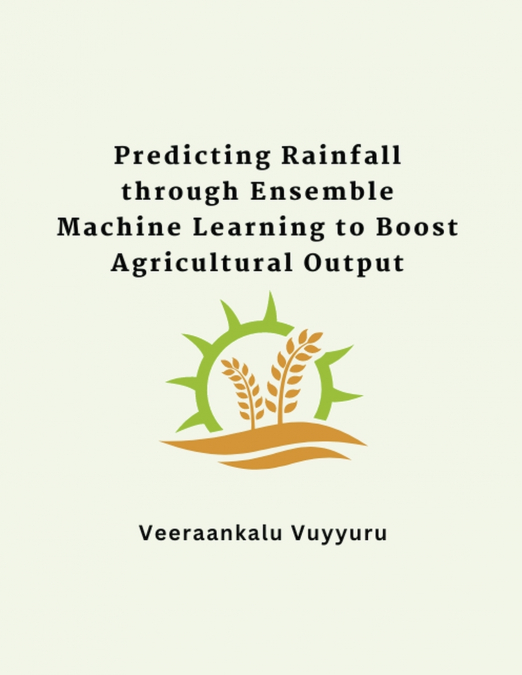
 Librería Perelló (Valencia)
Librería Perelló (Valencia)
 Librería Aciertas (Toledo)
Librería Aciertas (Toledo)
 El AlmaZen del Alquimista (Sevilla)
El AlmaZen del Alquimista (Sevilla)
 Librería Elías (Asturias)
Librería Elías (Asturias)
 Librería Kolima (Madrid)
Librería Kolima (Madrid)
 Donde los libros
Donde los libros
 Librería Proteo (Málaga)
Librería Proteo (Málaga)
Rainfall is essential to the survival of all living things. It is important not only for humans, but also for animals, plants, and all other living things. Water is probably one of the most natural resources on the planet, and it plays an important part in agriculture and farming. Changes in climatic conditions, as well as rising greenhouse gas emissions, have made it harder for humans and the planet to get the appropriate quantity of rainfall to meet human requirements and continue to utilize in daily life. As a result, it has become critical to analyze shifting rainfall patterns and attempt to forecast rain not just for human needs but also for environmental purposes to forecast natural disasters that might be caused by unexpected heavy rains.Weather forecasting is the process of predicting the future state of the atmosphere at a specific location by applying the current technology and methods, applied to the atmosphere’s present state such as humidity, temperature, and wind are gathered. Meteorology is the study of the earth’s atmosphere and the distinctions in moisture and temperature patterns. In the process of meteorology, the data collected over the present atmospheric conditions are used to determine the weather forecasts. The major challenges with weather forecasts lie in the atmosphere’s chaotic nature, and inadequate knowledge of the process and the forecast range to be predicted. In the case of Automatic weather stations or trained observers, initially, the process starts with observing the surface of the earth’s atmosphere followed by collecting information like wind speed and direction, temperature, precipitation, and humidity. Rainfall, stage a substantial character in the climate system as it directly influences other major factors such as agriculture, ecosystems, and water resource management. Often, if not properly managed, the heavy rainfall may also lead to natural disasters like floods, mudslides, landslides, and so on. Every year, the disasters caused by these heavy rainfalls are severely affecting the human-life and infrastructure. In recent times, machine learning has gained a lot of importance because of its capability in finding solutions to most conventional engineering problems. Machine learning algorithms train the computers on data and utilize statistical analysis to automatically predict output for the new input.